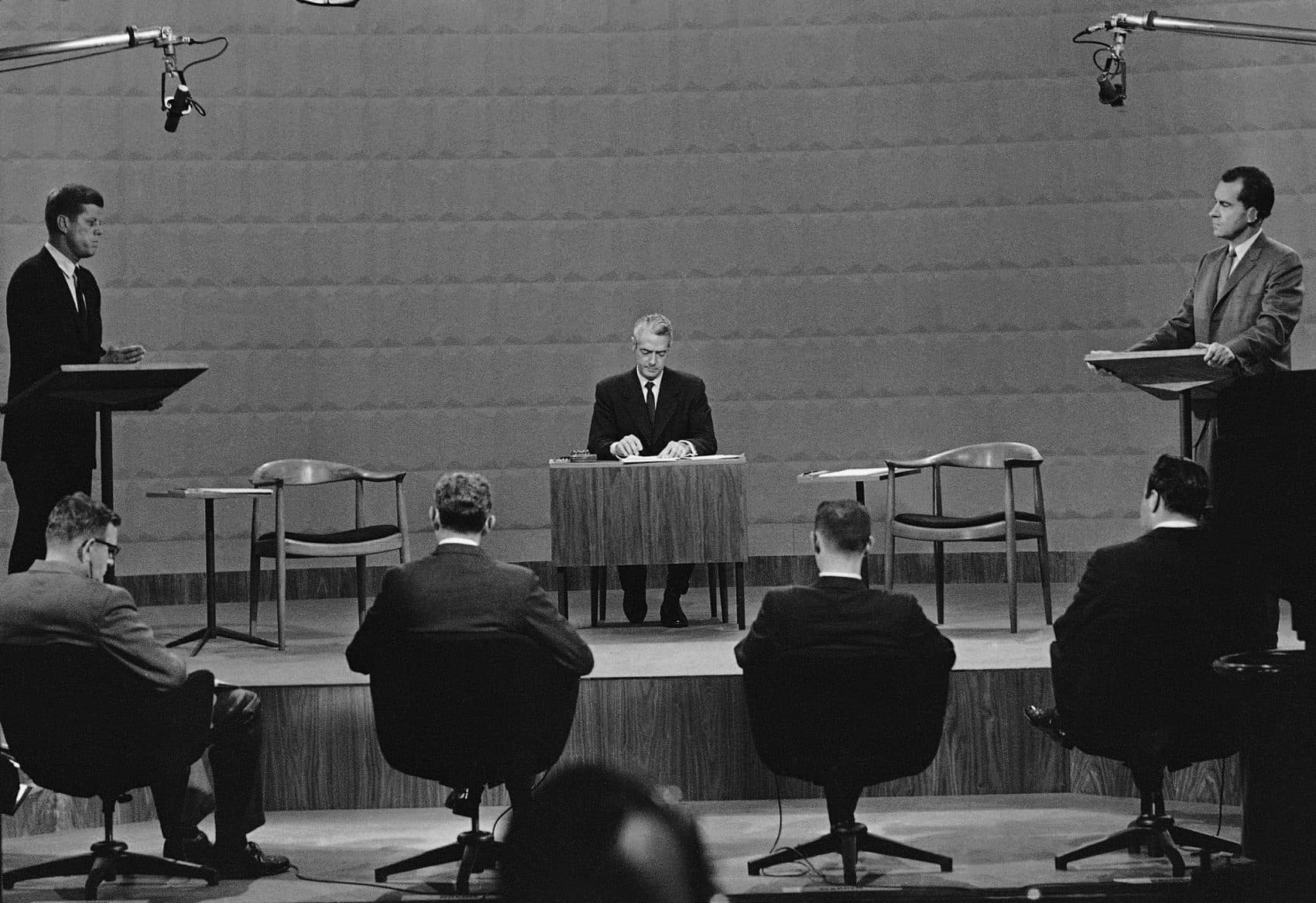Advertisement
The Fascinating History Of Presidential Debates
Resume
As presidential candidates Hillary Clinton and Donald Trump get ready for their first debate Monday night, Here & Now looks at some of the highlights in the history of presidential debates.
The first Clinton-Trump debate falls on the anniversary of the first-ever televised presidential debate, between Republican Richard Nixon and Democrat John F. Kennedy, on Sept. 26, 1960.
Here & Now's Jeremy Hobson speaks with historian Julian Zelizer about some of the most important moments in presidential debate history, and what each campaign's strategy might look like next week.
Interview Highlights: Julian Zelizer
On Monday's debate
"I think it's going to be a big debate. Social scientists often say debates don't make that big a difference. But the number of people who are going to watch this and the kind of fireworks that we can expect on this stage, given what we saw in the Republican primaries, might make this more significant than they otherwise would be. And I'm sure they're going to be very aggressive with each other.
The most important thing in debates is to not make a mistake. And certainly Hillary Clinton who's very seasoned will be doing that, trying to avoid any semblance of an error. Donald Trump is more freewheeling and we don't know exactly what he will do. But he will be provocative and I'm not sure he's going to calm himself down that much. So I think each has a very different strategy. Obviously, Hillary Clinton wants to use this to communicate to the public more about herself, what she stands for, and to respond to this ongoing concern that some Democrats seem to have with her."
On how the first debate impacted the 1960 presidential election
"It used to be said that it was pretty decisive, and when people saw John F. Kennedy, how he looked and how he sounded, it was such a dramatic contrast with Nixon, who had his five o'clock shadow, who didn't look into the camera, who really seemed uncomfortable, that was why the election ultimately went one way or another. It's not clear that's true. People have responded that it's an exaggeration. But it did confirm a basic impression that had developed about the two candidates and some of the excitement that have been generated about John F. Kennedy."
On what really matters in presidential debates
"... Substance really isn't at the heart of these debates — it's your style; it's your mannerism. Carter just gave this long speech about how Reagan was this radical and he had been against Medicare in the 1960s and he was going to go after Medicare again, and just was with a smile and a laugh and the humor that Reagan was very good at display. He basically, for many Americans, knocked out the seriousness of what Carter was saying, and that was something he was skilled at. Again, did it alter the debate? Carter thought it did, but I'm not convinced because of that line that's why we got a Reagan presidency. There were many other factors at work that moved the campaign in Reagan's direction."
On what kind of role moderators ought to play in 2016
"I think they have to [fact check]. I think we're in a moment in political history where there's a lot of fuzziness as some people are saying with the truth [and] facts. And I think it's incumbent on the moderators in this day and age to push back against candidates with what they say — they can't just let the candidates to use this as a 90-minute opportunity to tell us their campaign ads. I think it'd be a better event if the moderators are tough with the candidates."
Guest
Julian Zelizer, professor of history and public affairs at Princeton's Woodrow Wilson School of Public and International Affairs. He tweets @julianzelizer.
This article was originally published on September 22, 2016.
This segment aired on September 22, 2016.